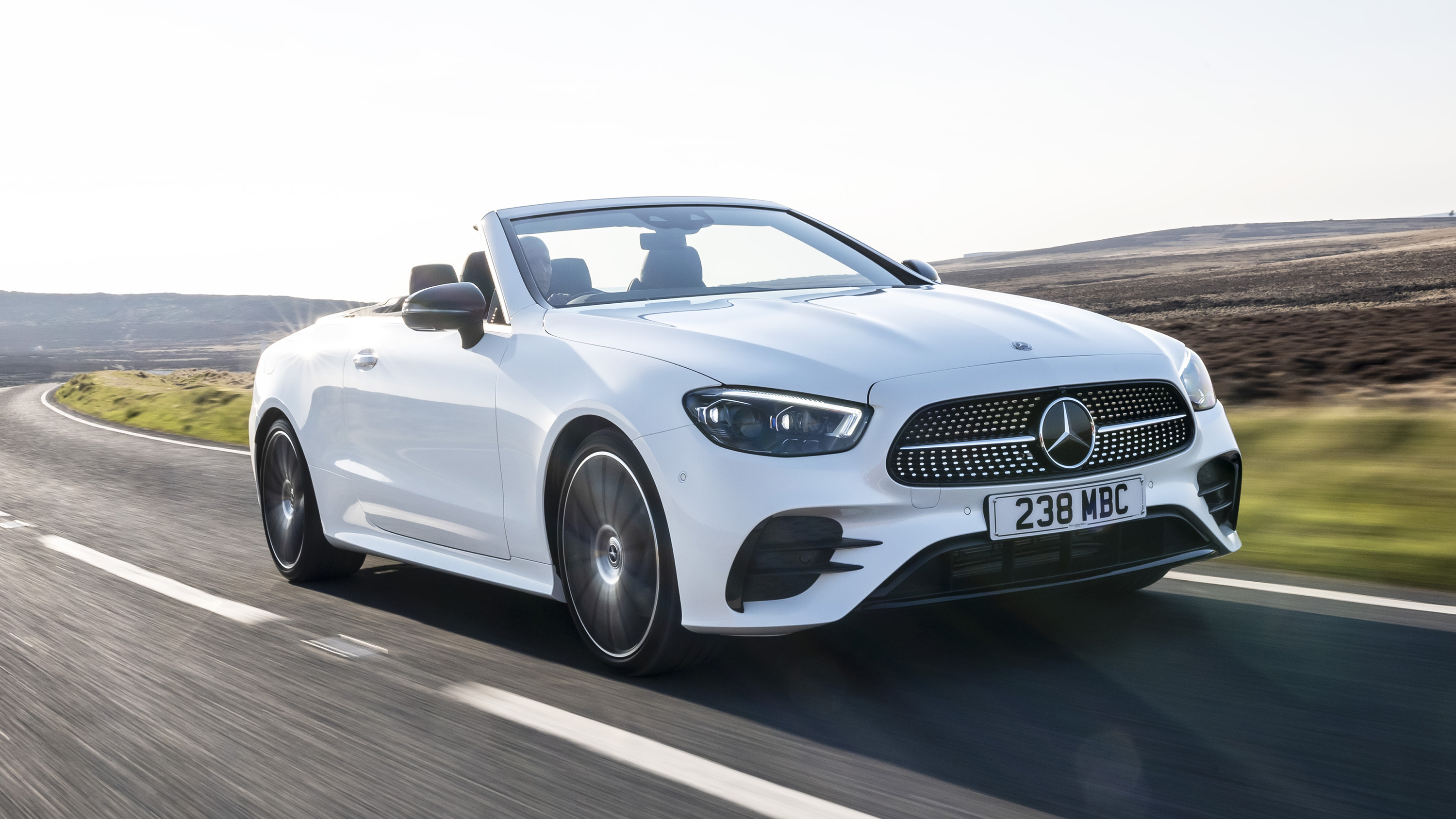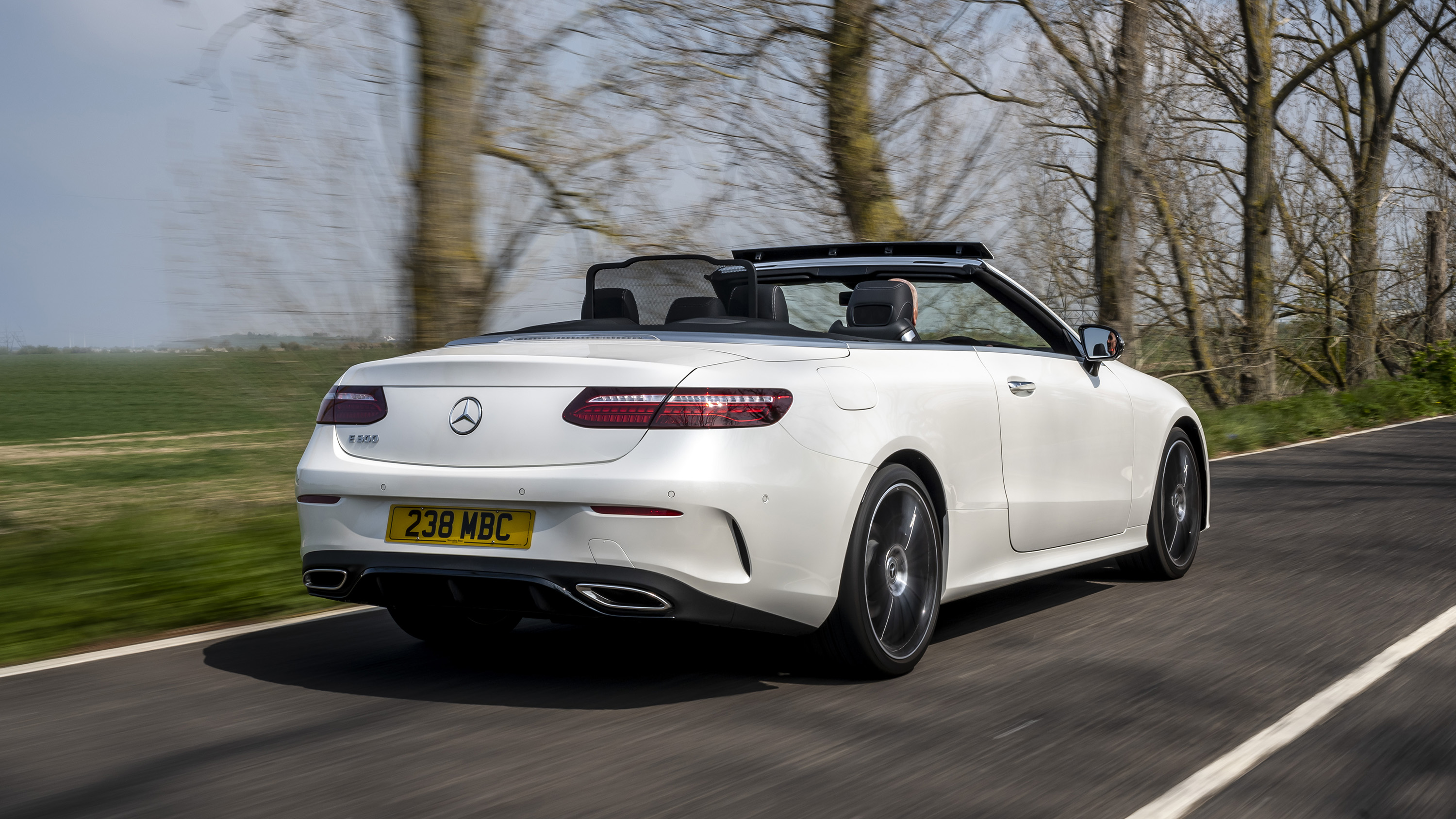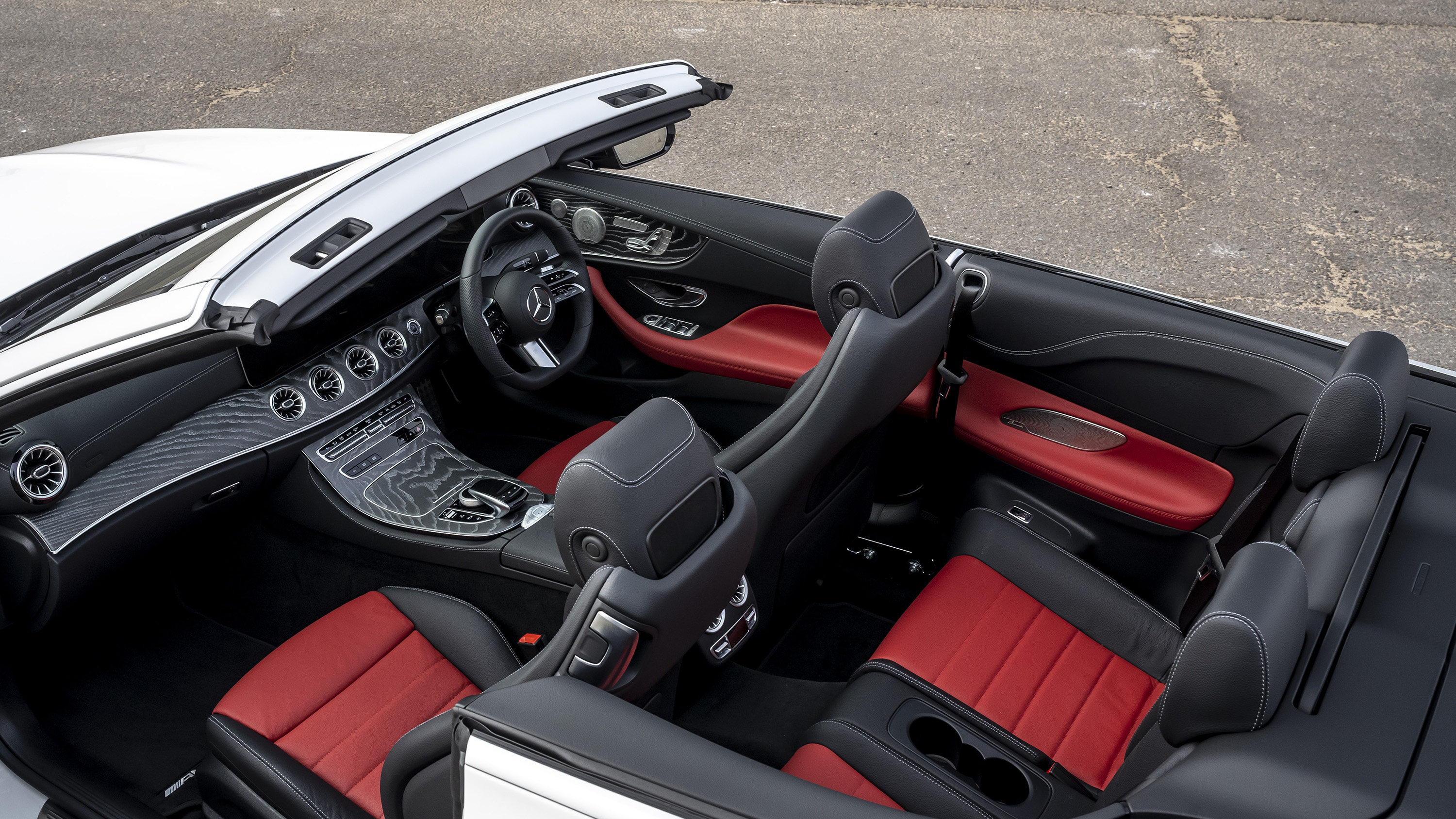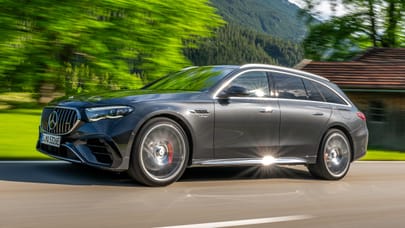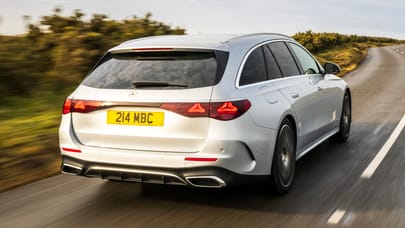
Driving
What is it like to drive?
At launch, Merc claimed the E-Class Cabriolet’s big-seller was going to be the E220d – as smooth, quiet and refined a relatively small diesel engine as you’ll find anywhere, it made sense. Not least because it really suits the Cabrio’s relaxed demeanour – you needn’t drive this thing especially quickly to enjoy it. In fact, it’s best enjoyed driven fairly sedately, with the powertrain left in Comfort and the roof down.
As such the slightly excitable E300 4cyl petrol feels a bit of a misfit, revving coarsely when you need an overtake or to simply make slightly hastier progress. Its small semblance of electrification – a little 14bhp booster pack – is there to minimise turbo lag rather than bring any silence to proceedings. This isn’t a hybrid you plug in or eke any zero-emission range from.
The lesson? Any money spent upgrading to one of the smoother 6cyl engines further up the range is likely spent well, for refinement’s rather than speed’s sake. Though this is not a car that falls apart when you start driving it a bit quicker. Despite the inevitable weight gain, it loses little to the Coupe dynamically, save for the occasional bit of judder through the steering column that signals it’s less rigid. It’s not a deal-breaker, but there’s perhaps more wobble than you might expect given the decades Merc’s been making four-seat cabrios for.
Everything just feels designed to lower your heart rate and deter you from the art of driving quickly. While a drive select mode cranks you up to Sport and even Sport Plus – the stability control apparently loosening in tandem – you’ll probably try it once and then stay in the default Comfort mode for the rest of your lease deal. Especially if you’re in a slightly vocal 4cyl petrol.
Driven with appropriate composure, the E-Class ultimately nails its brief by being an exceptionally refined convertible, as quiet as a coupe roof-up, and pleasingly free of bluster roof-down. UK cars come with the alarmingly upper-cased AIRSCARF and AIRCAP as standard – the former teasingly blows hot air on your neck to keep your warm roof-down, while the latter extends a fin across the top of the windscreen while an ungainly wind deflector pop up behind the rear seats like a slice of burnt toast.
Truth is, only the airscarf (much calmer in lower case, huh?) feels of real use below 'Autobahn outside lane' speeds; things are so placid at the British limit that you can keep the E’s classy lines intact and the ugly aircap system on the subs bench.




